The Health Committee moves into private sessionpublished at 12:34 BST 27 September 2016
The Health Committee moves into private session.
The Health Committee takes evidence on GP recruitment
NHS staff concerns are raised in topical questions
The government leads a debate on securing the interests of the country's rural economy following the Brexit vote
Scottish Labour MSP Monica Lennon leads this afternoon's members debate on feminine hygiene products
Craig Hutchison and Colin Bell
The Health Committee moves into private session.
Scottish Conservative MSP Miles Briggs asks what work has been undertaken to ensure the country has enough care home places.
Health Secretary Shona Robison says the demand has now shifted and people want to stay in their own home for as long as possible.
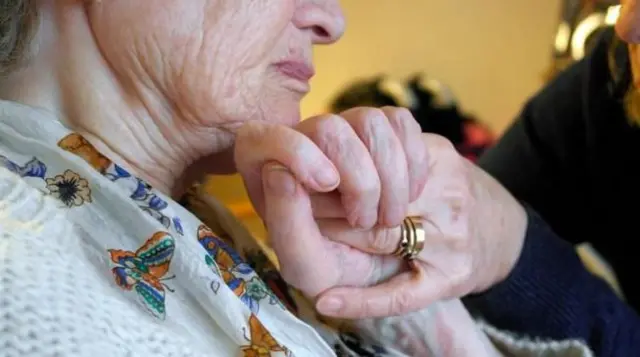 Image source, Science Photo Library
Image source, Science Photo LibraryMs Robison says going forward there will be a need for intermediate care and this will help to put the care home sector on a more level footing.
The health secretary says the needs and complexity of people ending up in full time care has changed greatly.
She says this is down to the changing needs of the population.
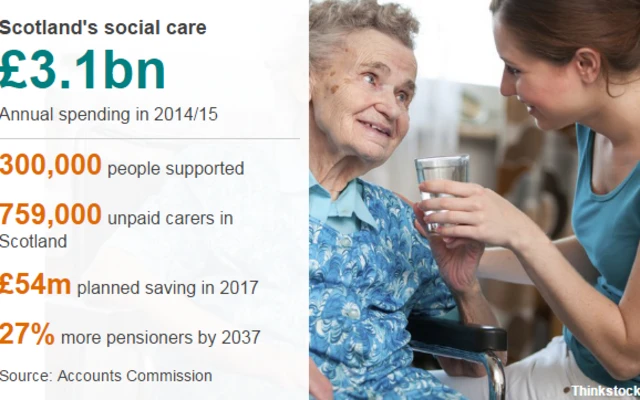 Image source, Thinkstock/Accounts Commission
Image source, Thinkstock/Accounts CommissionAlan Baird from the Scottish government says there has been good progress made in self-directed support.
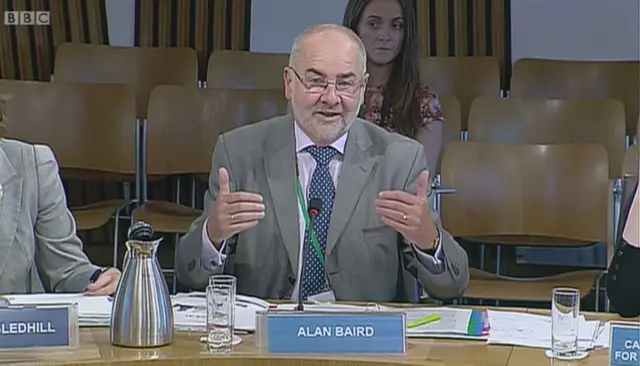
Mr Baird says people do get frustrated by the amount of paperwork and forms that are required for self-directed support.
He says those who are in receipt of it have seen their money reduced but this may be because they don't need as much support as they had before.
The current system of social care in Scotland is , according to a financial watchdog.
The Accounts Commission said an additional £667m, external would be needed by 2020 to maintain current levels of service, and called for a "frank and wide-ranging" debate on the issue.
It said an ageing population, budget cuts and legislative changes were putting pressure on the system.
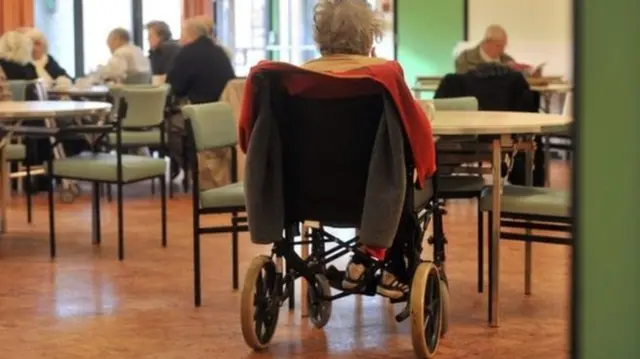 Image source, bbc
Image source, bbcScotland's 32 councils currently spend about £3.1bn on social care.
That money was used to provide support to more than 300,000 people in 2014/15 - about 70% of whom were aged over 65.
The commission also said the public and service users needed to be more involved in shaping future care.
Labour MSP Colin Smyth says social care providers were not consulted about the living wage policy.
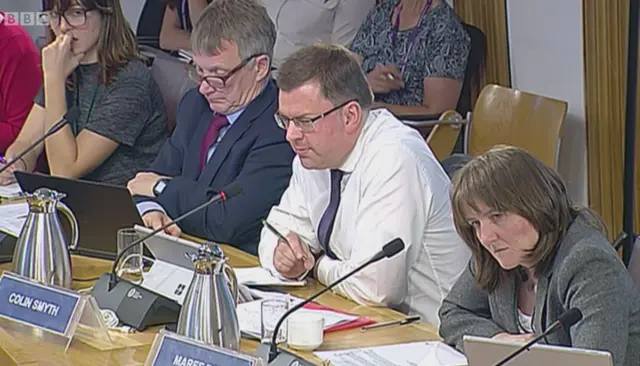
Health Secretary Shona Robison says the £250m provided for social care, had as a part of that, provision of the living wage.
Ms Robison says local partners must deliver the mechanism for paying the living wage and the government has provided the funding.
Conservative MSP Donald Cameron asks about Brexit and says there is an opportunity in lessening the burdern about procurement and tendering.
Ms Robision there will always be a need for openness and transparency in procurement and tendering.
 Image source, AFP
Image source, AFPShe says many of the social care workers are EU nationals.
The minister says she is extremely concerned at the potential loss of these workers from the workforce.
Their loss would be "a blow to the sector", she says.
She says "No matter where you come from your work here is valued and we want you to stay."
The health secretary says a further £250m in funding has been allocated to health and social care partnerships.
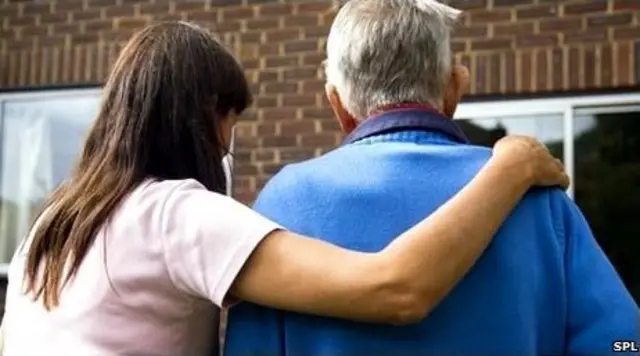
Ms Robison says to achieve transformational change staff must be properly supported.
She says there must be enough people with the right skills to support patients in the community.
Health Secretary Shona Robison says health and social care integration will ensure people get the right care at the right time.
Ms Robision says the government wants patients to stay in their own home for as long as possible.
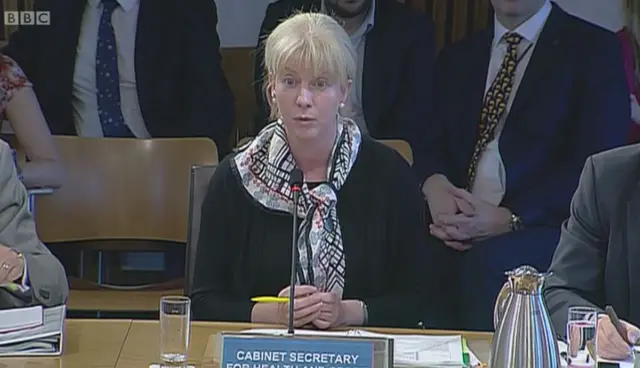
She says the health and social care partnerships came into effect this year.
The minister says nearly £4bn is spent on social care each year.
She says integration allows more innovation in care delivery.
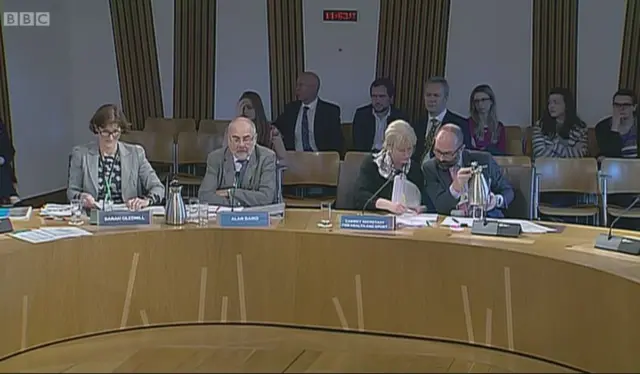
The committee will now look at the social and community care workforce and take evidence from
SNP MSP Maree Todd raises the impact of Brexit on the NHS workforce, as 5% of doctors are EU nationals and 15% of social care workers are EU nationals.
Ms Todd says there is a reasonable level of concern about this already.
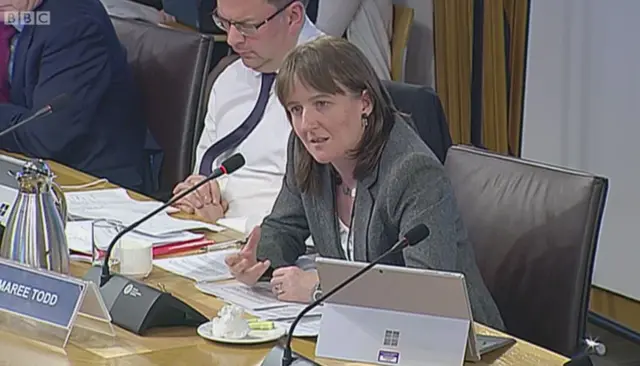
SNP MSP Maree Todd
The health secretary says the government wants to keep people working here in Scotland, whether they are EU nationals or not.
The message is they are welcome and we want them to stay.
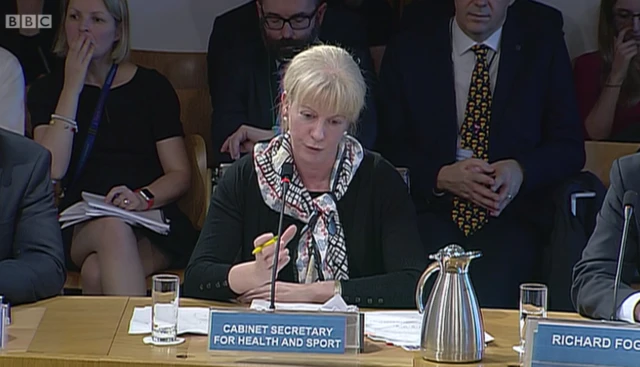 Image source, bbc
Image source, bbcHealth Secretary Shona Robison
Ms Robison says the primary care pilots are about changing the way things work and they are evidence based.
It is then about ensuring the test site practice is spread out around the area.
Health Secretary Shona Robison says there must be a joined up approach through primary care.
Ms Robison says the new model can help with that as it opens up the multidisciplinary approach.
She says prevention is at the core of the new model.
Conservative MSP Donald Cameron asks if the government has any plans to increase the share of funding general practice receives.
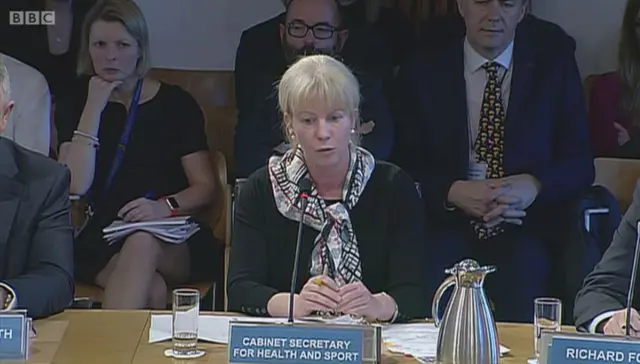
Ms Robison says yes, the government will increase the share of funding for general practice and primary care.
However the minister says you can't look at general practice funding in isolation as multidisciplinary working is the future, but within that there needs to be more GPs.
Ms Robison says the discussions with the BMA over the GP contracts are going very well.
Green MSP Alison Johnstone says there won't be a truly multidisciplinary team unless there are enough GPs.
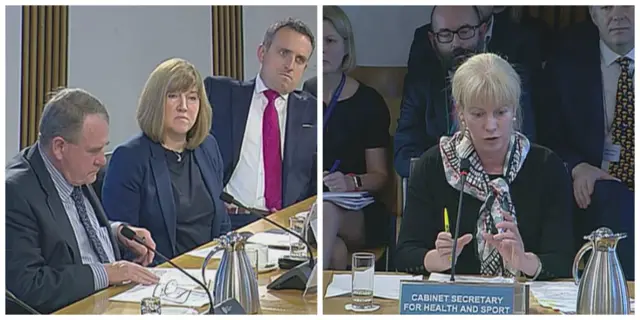
Ms Johnstone says there has been a notable increase in consultants while there are not enough GPs.
She asks "Is the funding matching the rhetoric?"
The health secretary says the 7% increase in GPs is head count and she agrees more GPs are needed
Ms Robison says there also need to be more nurses and pharmacists and she says the government is committed to increasing the share of primary care funding.
Shirley Rogers from the Scottish government says there is a need for more medical staff around the world, with an ageing population.
Ms Rogers says Scotland's medical skills are highly regarded and attract a high number of international students.
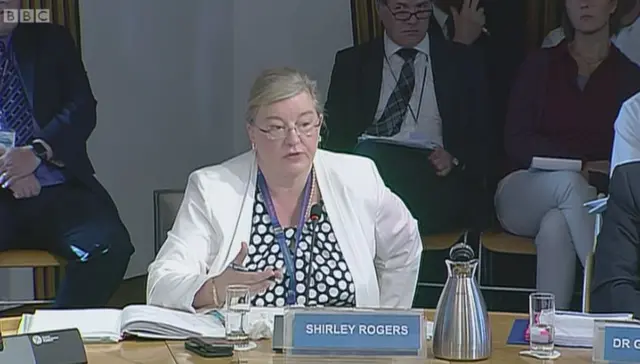
She says the universities are working with her on selection and says issues of access are being worked on.
The director for health workforce with the Scottish government says the attractiveness of the general practice is critical.
Health Secretary Shona Robison says the role of the GP is pivotal and that will continue to be the case.
Ms Robison says the new aspect is looking at using the range of skills in primary care to create a genuine multidisciplinary team.
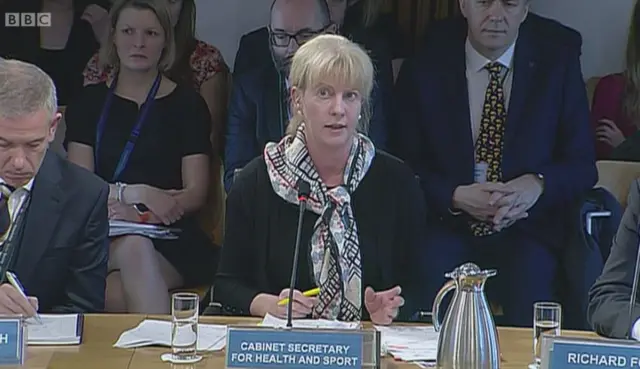
She says 25% of what GPs do could effectively be done by someone else.
"It is about making sure the patient gets the best service using the skills of the multidisciplinary team."
Mr Cole-Hamilton asks again if the minister would characterise the situation as a crisis.
Ms Robison says: "No I would characterise it as being very challenging."
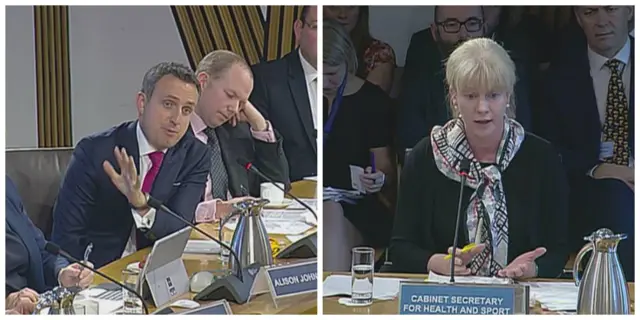
The health secretary asks how helpful it is to focus on terminology.
She says the most important thing is the vision for primary care that will attract more GPS.
Lib Dem MSP Alex Cole-Hamilton asks if the current situation in primary care is a crisis.
Health Secretary Shona Robison says: "It is a challenging situation without a doubt."
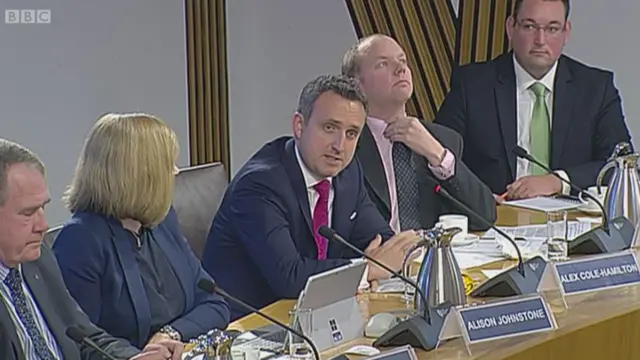
Lib Dem MSP Alex Cole-Hamilton
Ms Robison says primary care has been her priority and she accepts more GPs, are needed but it is also about what these GPs do.
She says there must be a sustainable model for primary care going forward.